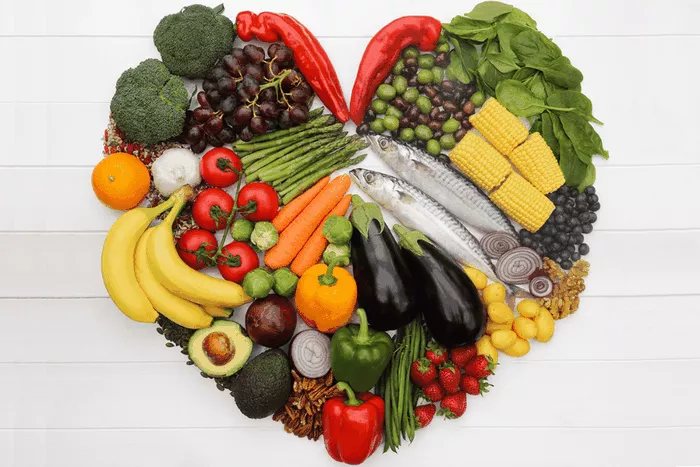A healthy diet plays a crucial role in maintaining heart health, and vegetables are often recommended as a staple for a heart-healthy lifestyle. Among the wide variety of vegetables available, certain ones stand out for their specific benefits to cardiovascular health. Understanding which vegetables are good for the heart can empower individuals to make informed dietary choices that support overall well-being. In this comprehensive guide, we delve into the scientific research and expert opinions to uncover the top vegetables that promote heart health.
1. Leafy Greens:
Leafy greens such as spinach, kale, Swiss chard, and collard greens are rich in vitamins, minerals, and antioxidants that are beneficial for heart health. They are particularly high in potassium, which helps regulate blood pressure and reduce the risk of stroke. Additionally, leafy greens contain nitrate, a compound that can improve blood flow and endothelial function, contributing to a healthy cardiovascular system.
2. Broccoli:
Broccoli is a cruciferous vegetable known for its powerful heart-protective properties. It is packed with antioxidants, including vitamin C, beta-carotene, and sulforaphane, which help reduce inflammation and oxidative stress in the body. Sulforaphane, in particular, has been shown to lower cholesterol levels and improve heart health by supporting the function of blood vessels.
3. Tomatoes:
Tomatoes are a rich source of lycopene, a carotenoid antioxidant that gives them their vibrant red color. Lycopene has been linked to a reduced risk of heart disease by lowering LDL cholesterol levels and decreasing inflammation in the arteries. Consuming tomatoes, whether fresh or cooked, can contribute to a heart-healthy diet.
4. Avocado:
Avocado is unique among fruits as it is high in healthy fats, particularly monounsaturated fats like oleic acid. These fats are beneficial for heart health as they can help lower LDL cholesterol and triglyceride levels while increasing HDL cholesterol, the “good” cholesterol. Avocado also provides potassium, fiber, and antioxidants that support cardiovascular well-being.
5. Garlic:
Garlic has long been valued for its medicinal properties, including its ability to promote heart health. It contains compounds like allicin, which has anti-inflammatory and blood pressure-lowering effects. Regular consumption of garlic may help reduce the risk of atherosclerosis (hardening of the arteries) and improve overall cardiovascular function.
6. Bell Peppers:
Bell peppers, especially the red and yellow varieties, are rich in vitamin C, beta-carotene, and other antioxidants that protect against heart disease. Vitamin C helps strengthen blood vessels, while beta-carotene converts to vitamin A, supporting immune function and cardiovascular health. Including bell peppers in a balanced diet can contribute to heart protection.
7. Carrots:
Carrots are a root vegetable loaded with beta-carotene, which has been associated with a lower risk of heart disease. Beta-carotene acts as an antioxidant, neutralizing free radicals that can damage cells and lead to cardiovascular issues. Incorporating carrots into meals or snacks adds a heart-healthy boost to the diet.
8. Sweet Potatoes:
Sweet potatoes are nutrient-dense tubers that offer a range of health benefits, including support for heart health. They are rich in potassium, fiber, vitamins, and antioxidants like beta-carotene. The combination of these nutrients helps regulate blood pressure, improve blood sugar control, and reduce inflammation, all of which are important for heart wellness.
9. Spinach:
Spinach is a leafy green vegetable packed with nutrients that benefit heart health. It is high in potassium, magnesium, folate, and antioxidants like lutein and zeaxanthin. These compounds work together to lower blood pressure, improve blood vessel function, and protect against oxidative stress, making spinach a heart-healthy choice.
10. Brussels Sprouts:
Brussels sprouts belong to the cruciferous vegetable family and are loaded with heart-protective nutrients. They are a good source of fiber, vitamins C and K, folate, and antioxidants. Regular consumption of Brussels sprouts has been linked to improved cholesterol levels, reduced inflammation, and enhanced cardiovascular function.
Conclusion
Incorporating a variety of vegetables into your diet can significantly contribute to heart health. Leafy greens, cruciferous vegetables, tomatoes, avocado, garlic, bell peppers, carrots, sweet potatoes, spinach, and Brussels sprouts are among the top choices for promoting cardiovascular wellness. By prioritizing these nutrient-rich foods, individuals can take proactive steps towards maintaining a healthy heart and reducing the risk of heart disease.


